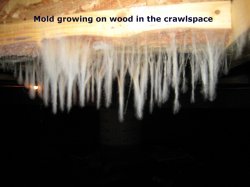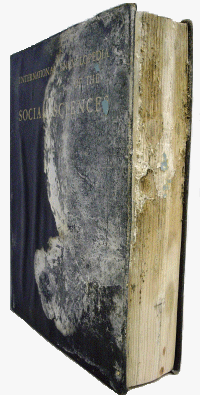Question: Could we be having mold in the crawlspace? I just moved into my apartment in June and I am surrounded by trees and I have a crawlspace. Well, I smell a strong mold smell in my Kitchen, bath and bedroom and they are along the same wall. I suspect the smell could be due to mold in the crawlspace. I have had several people tell me that they smell mold and I need to get it checked. My elderly mother lives with me and if I have a problem then I want to know how to deal with it. I am a renter and I did contact my landlord and he said that he would send someone out, but that’s been two weeks ago. And the first time that I complained, he told me that the vents were closed and the smell should go away but it’s still there.. I need some advice, please.
Answer: Mold in the crawlspace or basement often relates to improper drainage that leaves standing moisture under a property. Checking for and removing mold in the crawlspaces of your home is a good preventative measure. Mold is believed to play a part in numerous health problems, including allergy symptoms like watery eyes and skin rashes, disorientation, dizziness, respiratory conditions and headaches. Though the living spaces are isolated from the crawlspace, mold in the crawlspace produce small spores that could be carried in air currents, rising up into the living area. The strong moldy smell that you’re experiencing is highly likely being caused by microbial growth and it’s an indication of moisture problems. You may have to continue talking to your landlord so that they could bring in a professional to determine where the mold is located and the source of moisture and give recommendations on how to correct the problem. The extent of mold growth, if any, should also be determined and an appropriate level of mold remediation recommended.


